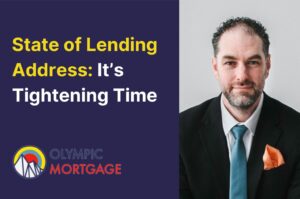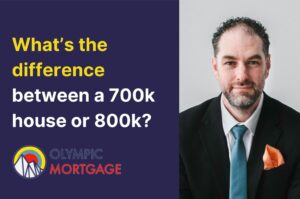[av_textblock size=” av-medium-font-size=” av-small-font-size=” av-mini-font-size=” font_color=” color=” id=” custom_class=” template_class=” av_uid=’av-kdzajd7h’ sc_version=’1.0′ admin_preview_bg=”]
Are We Living In A Real Estate Bubble?
Reaction To The Additional Change In The Stress Test.
[/av_textblock]
[av_hr class=’invisible’ icon_select=’yes’ icon=’ue808′ font=’entypo-fontello’ position=’center’ shadow=’no-shadow’ height=’50’ custom_border=’av-border-thin’ custom_width=’50px’ custom_margin_top=’30px’ custom_margin_bottom=’30px’ custom_border_color=” custom_icon_color=” id=” custom_class=” av_uid=’av-kebgphwq’ admin_preview_bg=”]
[av_one_full first min_height=” vertical_alignment=” space=” row_boxshadow=” row_boxshadow_color=” row_boxshadow_width=’10’ custom_margin=” margin=’0px’ mobile_breaking=” border=” border_color=” radius=’0px’ padding=’0px’ column_boxshadow=” column_boxshadow_color=” column_boxshadow_width=’10’ background=’bg_color’ background_color=” background_gradient_color1=” background_gradient_color2=” background_gradient_direction=’vertical’ src=” background_position=’top left’ background_repeat=’no-repeat’ highlight=” highlight_size=” animation=” link=” linktarget=” link_hover=” title_attr=” alt_attr=” mobile_display=” id=” custom_class=” aria_label=” av_uid=’av-4e7uch’]
[av_textblock textblock_styling_align=” textblock_styling=” textblock_styling_gap=” textblock_styling_mobile=” size=” av-medium-font-size=” av-small-font-size=” av-mini-font-size=” font_color=” color=” id=” custom_class=” template_class=” av_uid=’av-kebgsrj3′ sc_version=’1.0′ admin_preview_bg=”]
The Announcement
The Government of Canada has officially increased the stress test rate mortgage qualification. After OSFI’s major announcement, Deputy Prime Minister and Finance Minister Chrystia Freeland said in a statement the new rules will also apply to insured mortgages – mortgages with a down payment of less than 20 per cent.
“The federal government will align with OSFI by establishing a new minimum qualifying rate for insured mortgages, subject to review and periodic adjustment, which will be the greater of the borrower’s mortgage contract rate plus 2 per cent, or 5.25 per cent,” she said.
This move deviates from the original announcement earlier in April calling for the increase in the stress test only to uninsured mortgages; you can see our earlier article about this here.
Here’s What We Think
This move by OSFI is a confusing one. Despite our disagreement with any increase in the stress test, we were at least encouraged that first time homebuyers wouldn’t be affected. Now it seems that OSFI is targeting all buyers with this stress test change.
We do not agree with this move. We saw the original change to uninsured mortgages as a way of leveling the playing field between insured purchases and uninsured purchases or refinances. Now, the disparity will grow between those who have property and mortgages and those who don’t. Although the overall change to the stress test is only 0.5%, this puts another dagger into the hopes of many first time homebuyers who may have qualified under the original stress test.
We’re constantly trying to figure out the reasoning behind OSFI’s decisions, but are mostly coming up short with any real explanations. We can only assume they put these policies in place in an attempt to prevent the supposed “real estate bubble” from collapsing, in case rates do ever go up significantly. They are also doing this to slow the hot real estate market that we are living in.
Unrealistic Stress Test
Let’s examine the above further. Current variable rates are 3.5% to 4% lower than the stress test rate. We have rates ranging from 1.19% variable with our low rate lender, all the way up to 1.8% on rental properties, with the 5 big banks. Even if the Prime Rate increases, is it reasonable to think that the rate will go up by 4%? Of course not. When the BOC (Bank of Canada) increases rates, they do it at 0.25% at time, and rarely at time will increase it by 0.5%. It is unreasonable to set the stress test so high, as it’s not even close to where current lending rates sit.
Demand Is Still Very Strong and Our Economy Is Robust
Also, are we actually living in a real estate bubble? Is this supposed bubble a real threat? No. Our view from the ground is that we see a huge demand for real estate, and it’s not slowing. Most of the demand is still being driven by those who are purchasing primary residences. Our economy is robust and diverse with unemployment kept in check, giving strength to the underlying factors that hold up our real estate market. A more simplified view of this statement is, those who are buying homes generally have secure jobs, and it’s unlikely that a large swath of current homeowners are all of a sudden going to lose their income that sustains their lives and mortgage obligations. When someone buys a home, they are additionally motivated to keep the home, by any means necessary. The fact that someone owns a home and has pride in home ownership contributes to the fact that our foreclosure rate is so low.
In addition, underwriting policies in Canada are very strict. Income requirements are extremely rigid. Somehow though even with our strict income and credit score requirements, our demand remains high. It’s not like the banks are granting loans to people without jobs or income, that’s just not happening. Equity loans are extremely difficult to come by and require very large downpayments. If you want an equity loan from the banks, you need at least 35% downpayment, plus you have to demonstrate a high personal net worth. It’s unlikely anyone is going to allow themselves to be foreclosed on if they have 35% equity in a home, with more assets to back them up.
Migration Of Funds From Expensive Markets
So, with our robust economy, strict underwriting policies, and high stress test, are we in a bubble? No. My only thought is that we might see more of a migration of real estate funds moving from more expensive markets like Toronto or Vancouver, to less expensive markets across the country. Someone in Vancouver might sell and move to Vancouver Island or elsewhere in BC. This effect is going to keep driving less expensive markets, and values across the country will keep going up.
Migration Into Canada
Right now, Canada is a great place to live, and money from around the world keeps flowing in, not out. Let’s even look at Calgary, a city where the energy industry is predominant and considered the main driver of the economy. Even in the worst of times, Calgary saw a decrease in real estate of maybe 10%, perhaps 15%. Now, Calgary is in a hot market, with demand high. Despite what we hear on the news, Calgary does have a diverse economy, with lots of factors driving its real estate. Sure, there are those who will dream of apocalyptic scenarios where the oil and gas industry will be swept away in a flash. In reality, it’s not going anywhere for the foreseeable future. Real estate in Calgary will endure, as will real estate in the rest of Canada.
Final Thoughts
As of now, rates will be holding and inflation is not a major threat. Instead of going after the demand side of the real estate market, perhaps the government should be doing more to increase the supply in our markets, in order to alleviate the demand that keeps driving prices higher. To keep going after the demand will contribute to a sourness that renters already feel. It’s too hard to get into the market, and these policies going after qualifications and demand just make it harder.
It’s like all the policy makers can’t actually see what is happening on the ground in our real estate markets. Perhaps they need to step out of their own bubbles, take a serious look at how things really are, and come at things with a more balanced approach. What that approach looks like, we don’t know, but the current strategy is just not working.
Signing off for now,
David Steinberg, AMP, BComm
Owner, Broker
Olympic Mortgage Corporation
[/av_textblock]
[/av_one_full][av_section min_height=” min_height_pc=’25’ min_height_px=’500px’ padding=’default’ shadow=’no-border-styling’ bottom_border=’border-extra-arrow-down’ bottom_border_diagonal_color=’#333333′ bottom_border_diagonal_direction=” bottom_border_style=” custom_margin=’0px’ custom_margin_sync=’true’ custom_arrow_bg=” color=’main_color’ background=’bg_color’ custom_bg=” background_gradient_color1=” background_gradient_color2=” background_gradient_direction=’vertical’ src=” attachment=” attachment_size=” attach=’scroll’ position=’top left’ repeat=’no-repeat’ video=” video_ratio=’16:9′ overlay_opacity=’0.5′ overlay_color=” overlay_pattern=” overlay_custom_pattern=” id=” custom_class=’smaller-h2′ aria_label=” av_element_hidden_in_editor=’0′ av_uid=’av-49ra5x’]
[av_one_half first min_height=’av-equal-height-column’ vertical_alignment=’av-align-top’ space=” margin=’0px’ margin_sync=’true’ row_boxshadow_color=” row_boxshadow_width=’10’ link=” linktarget=” link_hover=” title_attr=” alt_attr=” padding=’0px’ padding_sync=’true’ highlight_size=’1.1′ border=” border_color=” radius=’0px’ radius_sync=’true’ column_boxshadow_color=” column_boxshadow_width=’10’ background=’bg_color’ background_color=” background_gradient_color1=” background_gradient_color2=” background_gradient_direction=’vertical’ src=” attachment=” attachment_size=” background_position=’top left’ background_repeat=’no-repeat’ animation=” mobile_breaking=” mobile_display=” id=” custom_class=’reasons’ av_uid=’av-k4d4q8cd’]
[av_textblock size=” av-medium-font-size=” av-small-font-size=” av-mini-font-size=” font_color=” color=” id=” custom_class=” template_class=” av_uid=’av-k4d4q15q’ sc_version=’1.0′ admin_preview_bg=”]
Thinking of investing in real estate?
Contact us – we are the experts!
[/av_textblock]
[/av_one_half][av_one_half min_height=” vertical_alignment=” space=” custom_margin=” margin=’0px’ row_boxshadow=” row_boxshadow_color=” row_boxshadow_width=’10’ link=” linktarget=” link_hover=” title_attr=” alt_attr=” padding=’0px’ highlight=” highlight_size=” border=” border_color=” radius=’0px’ column_boxshadow=” column_boxshadow_color=” column_boxshadow_width=’10’ background=’bg_color’ background_color=” background_gradient_color1=” background_gradient_color2=” background_gradient_direction=’vertical’ src=” background_position=’top left’ background_repeat=’no-repeat’ animation=” mobile_breaking=” mobile_display=” av_uid=’av-2geyit’]
[av_textblock size=’23’ av-medium-font-size=” av-small-font-size=” av-mini-font-size=” font_color=” color=” id=” custom_class=” av_uid=’av-k4d4qjbd’ admin_preview_bg=”]
[gravityform id=”10″ title=”false” description=”false”]
[/av_textblock]
[/av_one_half]
[/av_section]




